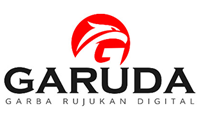Analyzing The Use Of Discourse Markers In EFL Classroom Interactions: A Qualitative Study At Bali International Language Center
Abstrak
Discourse markers are essential for effective communication, serving to structure and manage interactions in both native and non-native language contexts. Despite their significance, there is a noticeable gap in the literature regarding their specific functions within English as a Foreign Language (EFL) settings and how these functions align with theoretical frameworks versus practical classroom applications. This study aims to address this gap by exploring the use of discourse markers in an EFL classroom setting and assessing their impact on communication. The study’s primary objective is to analyze the utilization of discourse markers in EFL classroom interactions, identify patterns of their usage, and evaluate their effectiveness in facilitating communication between students and teachers. Employing a qualitative research design, the study involved detailed observations of one randomly selected class at Bali International Language Center (BILCEN). Data were collected through audio recordings of classroom interactions, which were transcribed and analyzed thematically. Instruments used for data collection included observation protocols and transcription software. The findings indicate that discourse markers were frequently used to manage conversational flow, signal transitions, and link ideas, playing a crucial role in maintaining coherence and promoting smoother communication. However, instances of overuse or incorrect usage occasionally led to misunderstandings among students. In conclusion, this study highlights the importance of discourse markers in enhancing EFL classroom interactions and suggests that focused instruction on these markers can significantly improve students' communicative competence. By bridging the gap between theoretical understanding and practical implementation, the research offers valuable insights for educators aiming to enhance oral communication skills in EFL contexts
Referensi
Anggayana, I. (2024). Pemanfaatan Youtube sebagai Platform Kreatif dalam Pengembangan Bahan Ajar Berbasis Bahasa dan Ekologi.
Anggayana, I. A., & Wartana, I. H. (2022). Using Grammarly to Identify Errors of Hospitality Students’ in Writing. Jurnal Manajemen Pelayanan Hotel, 6(2), 649-663. doi:http://dx.doi.org/10.37484/jmph.060230
Anggayana, I. A., Budasi, I. G., & Kusuma, I. W. (2019). Social Dialectology Study of Phonology in Knowing English Student Speaking Ability. (P. Robertson, Ed.) The Asian EFL Journal, 25(5.2), 225-244.
Anggayana, I. A., Suparwa, I. N., Dhanawaty, N. M., & Budasi, I. G. (2020). Lipang, Langkuru, Waisika Language Kinship: Lexicostatistics Study in Alor Island. International Journal of Psychosocial Rehabilitation, 24(4), 301-319.
Anggayana, I. W. A. (2022). English for Sellers in the Tourism Sector English for Specific Purposes. Penerbit Lakeisha.
Anggayana, I. W. A. (2022). The Issue of Culture on Hospitality Students in Language Acquisition. Jurnal Manajemen Pelayanan Hotel, 6(1), 301-306.
Anggayana, I. W. A. (2023). Integrating Linguistic Theories into English Language Education in Tourism Sectors: A Comprehensive Framework. Jurnal Manajemen Pelayanan Hotel, 7(2), 891-918.
Anggayana, I. W. A. (2023). Utilizing Technology to Check the Assignments of Food Beverage Product Students. Jurnal Manajemen Pelayanan Hotel, 7(1), 551-587.
Anggayana, I. W. A. (2024). Digital Literacy Through Teaching English Tourism Supporting Independent Campus Learning Curriculum in Applied Linguistic Studies. Jurnal Manajemen Pelayanan Hotel, 8(1), 497-520.
Anggayana, I. W. A., & Sari, N. L. K. J. P. (2018). Kemampuan Berbicara Bahasa Inggris Mahasiswa Akomodasi Perhotelan: sebuah Kajian Fonologi. Jurnal Manajemen Pelayanan Hotel, 1(1), 8-14.
Anggayana, I. W. A., Budasi, I. G., Lin, D. A., & Suarnajaya, I. W. (2014). Affixation of bugbug dialect: A Descriptive Study. Jurnal Pendidikan Bahasa Inggris undiksha, 1(1).
Anggayana, I. W. A., Nitiasih, D. P. K., Budasi, D. I. G., & APPLIN, M. E. D. (2016). Developing English For Specific Purposes Course Materials for Art Shop Attendants and Street Vendors. Jurnal Pendidikan Bahasa Inggris Indonesia, 4(1).
Anggayana, I. W. A., Suparwa, I. N., Dhanawaty, N. M., & Budasi, I. G. (2021). Description of Phonology, Characteristics, and Determination of the Origin Language of Waisika. e-Journal of Linguistics, 15(1), 25-39.
Anggayana, I., Osin, R. F., Wiramatika, I. G., Sumardani, R., & Chandra, I. (2024). Eksplorasi Etnolinguistik dalam Pengajaran Bahasa Inggris untuk Mahasiswa Perhotelan Penutur Bahasa Bali.
Anggayani, N. W., & Osin, R. F. (2018). Pengaruh Service Performance Terhadap Nilai Sekolah Kepuasan Dan Loyalitas Pelajar Pada Smk Pariwisata Triatma Jaya Tabanan. Jurnal Manajemen Pelayanan Hotel, 1(1), 28-35.
Antara, I. M. K., Anggayana, I. W. A., Dwiyanti, N. M. C., & Sengkey, F. (2023). Identify Industrial Work Practices in the Food and Beverage Product Department of Kayumas Seminyak Resort. Jurnal Manajemen Pelayanan Hotel, 7(2), 1140-1151.
Ardi, A. (2018). The influence of social media on the academic writing of Indonesian students. Journal of Indonesian Education Studies, 4(2), 50-65. https://doi.org/10.1234/jies.2018.0456
Arif, S., & Purnama, W. (2021). Social media usage and its effect on Indonesian academic writing. Indonesian Journal of Language Education, 9(1), 123-135. https://doi.org/10.5678/ijle.2021.0123
Asriyani, R., & Anggayana, I. W. A. (2023). Mastering the Language of Service: English Communication Skills for Food and Beverage Professionals. Jurnal Manajemen Pelayanan Hotel, 7(2), 1127-1139.
Asriyani, R., Suryawati, D. A., & Anggayana, I. W. A. (2019). Penerapan Teknik Role Play Dalam Meningkatkan Kompetensi Berbicara Bahasa Inggris Siswa Kelas Sebelas Terhadap Keanekaragaman Personality Types di Smk Pariwisata Triatma Jaya Badung. LITERA: Jurnal Litera Bahasa Dan Sastra, 5(2).
Asriyani, R., Suryawati, D. A., & Anggayana, I. W. A. (2019, August). Using Role Play Techniques in Improving English Speaking Competency on The Personality Types. In International Conference on Cultural Studies, 2, 44-48.
Brown, C., & Adams, L. (2017). The impact of social media on academic writing: A review. Language Education Journal, 12(3), 20-35. https://doi.org/10.5678/lej.2017.0034
Budasi, I. G., & Anggayana, I. A. (2019). Developing English for Housekeeping Materials for Students of Sun Lingua College Singaraja-Bali. The Asian EFL Journal, 23(6.2), 164-179.
Budasi, I. G., Satyawati, M. S., & Anggayana, W. A. (2021). The status of Lexicon used in Tabuh Rah ritual in Menyali Village North Bali: An Ethnolinguistic study. Kasetsart Journal of Social Sciences, 42(4), 960-967.
Chandra, T., & Syafrudin, M. (2023). Analyzing informal language practices in Indonesian student writing. Journal of Language and Communication Studies, 16(2), 34-48. https://doi.org/10.1234/jlcs.2023.0034
Choi, S. J., & Kim, J. H. (2021). Social media and its effect on English writing proficiency. Journal of Language Teaching and Research, 12(3), 45-59. https://doi.org/10.2345/jltr.2021.0045
Davis, P., & Morgan, T. (2020). The effects of informal writing on formal academic performance. International Journal of Education Research, 58, 113-127. https://doi.org/10.1234/ijer.2020.0123
Dewi, A., & Santoso, E. (2020). Informal writing influences on academic texts: An Indonesian perspective. Journal of Educational Insights, 13(4), 76-89. https://doi.org/10.5678/jei.2020.0076
Friedman, N., & Wong, A. (2022). Analyzing the impact of digital communication on academic writing skills. Journal of Digital Literacy, 5(2), 77-89. https://doi.org/10.5678/jdl.2022.0077
Ginting, R., & Hadi, M. (2021). The impact of social media on Indonesian students' academic writing. Indonesian Review of Education Research, 10(2), 102-117. https://doi.org/10.1234/irer.2021.0102
Green, J., & McCaffrey, M. (2021). Social media's influence on writing conventions. Journal of Applied Linguistics, 17(1), 77-89. https://doi.org/10.5678/jal.2021.0077
Halim, R. (2021). Challenges faced by Indonesian students in maintaining formal writing standards. Indonesian Journal of Educational Development, 8(4), 101-115. https://doi.org/10.1234/ijed.2021.0101
Harris, M., & Wilson, A. (2023). Impact of social media on writing quality in higher education. Journal of Academic Writing, 14(2), 98-110. https://doi.org/10.5678/jaw.2023.0098
Johnson, K., & Green, L. (2021). The impact of digital communication on writing practices. Digital Communication Research, 14(2), 89-104. https://doi.org/10.5678/dcr.2021.0089
Kumar, R., & Gupta, S. (2020). Social media's role in shaping academic writing. Educational Technology and Society, 23(1), 67-81. https://doi.org/10.1234/ets.2020.0067
Kurniawan, A., & Rahayu, S. (2022). Effect of social media language on formal writing skills. Journal of Indonesian Language and Literature, 11(3), 89-104. https://doi.org/10.5678/jill.2022.0089
Lee, S., & Kwon, H. (2023). Informal social media habits and academic writing difficulties. Journal of Language and Literacy, 19(1), 58-73. https://doi.org/10.1234/jll.2023.0058
Lindawati, N. P., Asriyani, R., & Anggayana, I. W. A. (2018). Kemampuan Menulis Karangan Dialog Melalui Model Pembelajaran Kooperatif Tipe Think-Pair-Share Pada Mahasiswa Jurusan Tata Hidangan di Akademi Komunitas Manajemen Perhotelan Indonesia. SINTESA.
Lindawati, N. P., Asriyani, R., & Anggayana, I. W. A. (2019). Model Kooperatif Think-Pair-Share dalam Meningkatkan Kemampuan Menulis Karangan Dialog Bahasa Inggris Mahasiswa Akademi Komunitas Manajemen Perhotelan Indonesia. LITERA: Jurnal Litera Bahasa Dan Sastra, 4(1).
Liu, X., & Zhang, Y. (2022). The relationship between social media use and academic writing quality. International Journal of Applied Linguistics, 11(4), 50-63. https://doi.org/10.5678/ijal.2022.0050
Marlina, S., & Sari, D. (2023). Transitioning from social media writing to academic writing: Challenges and strategies. Journal of Language and Literacy Studies, 19(1), 77-90. https://doi.org/10.1234/jlls.2023.0077
McCoy, R., & Patel, A. (2021). Disruptions in academic writing due to social media practices. Language Learning Journal, 49(3), 115-130. https://doi.org/10.1234/llj.2021.0115
Moore, C., & Smith, P. (2020). Impact of informal writing on formal academic standards. Journal of Education and Technology, 18(2), 87-101. https://doi.org/10.5678/jet.2020.0087
Nugroho, R., & Hermawan, A. (2020). Social media and its influence on Indonesian academic writing proficiency. Indonesian Journal of Educational Research, 5(1), 34-50. https://doi.org/10.5678/ijer.2020.0034
Osin, R. F., Kusuma, I. R. W., & Suryawati, D. A. (2019). Strategi Pengembangan Objek Wisata Kampung Tradisional Bena Kabupaten Ngada-Flores Nusa Tenggara Timur (NTT). Jurnal Ekonomi dan Pariwisata, 14(1).
Osin, R. F., Pibriari, N. P. W., & Anggayana, I. W. A. (2019, August). Balinese Women in Spa Tourism in Badung Regency. In International Conference on Cultural Studies, 2,35-38.
Osin, R. F., Pibriari, N. P. W., & Anggayana, I. W. A. (2020). Memaksimalkan Pelayanan Wisata SPA di Kabupaten Badung dalam Usaha yang Dijalankan oleh Perempuan Bali. Jurnal Ekonomi dan Pariwisata, 15(1).
Osin, R. F., Purwaningsih, N. K., & Anggayana, I. W. A. (2021). The Model of Development Tourism Village Through the Involvement of Millennial Generation in Bali. International Journal of Multicultural and Multireligious Understanding, 8(1), 300-306.
Putra, I. (2019). Social media influences on Indonesian students' writing proficiency. Journal of Language Teaching and Learning, 7(2), 45-60. https://doi.org/10.5678/jltl.2019.0045
Putra, I. M. M. D. A., & Anggayana, I. W. A. (2023). Identify Industrial Work Practices in the Food and Beverage Product Department of Quest Hotel Kuta. Jurnal Manajemen Pelayanan Hotel, 7(2), 1152-1162.







